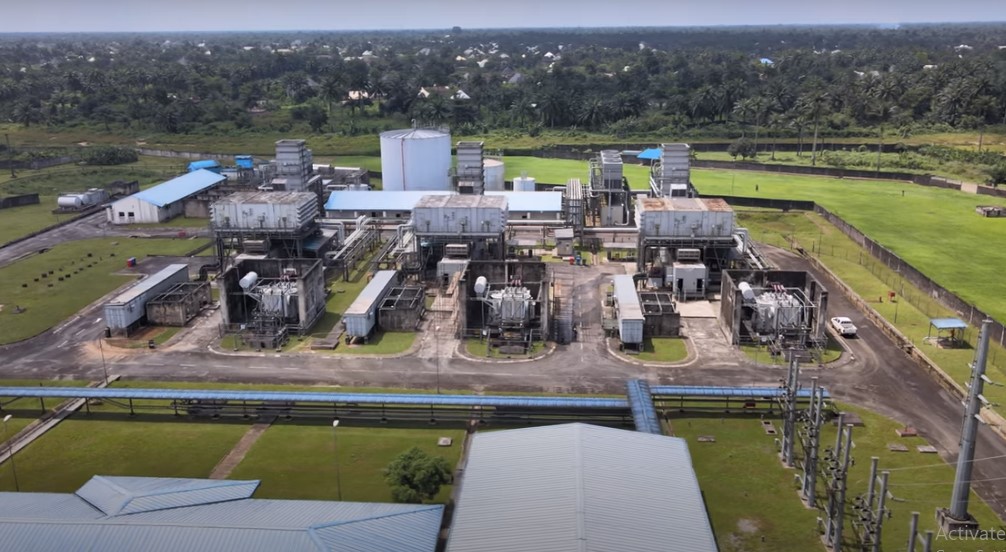Residents of Aba in Abia State are celebrating 48 hours of uninterrupted electricity following the installation of the $800 million Geometric Power Pl
Residents of Aba in Abia State are celebrating 48 hours of uninterrupted electricity following the installation of the $800 million Geometric Power Plant.
Since the switching on of one out of four turbines at the plant on Sunday, February 25, 2024, some sections of Aba have been enjoying uninterrupted power supply.
A video of a resident celebrating the constant electricity was shared by a social media user who wrote, “Aba residents now enjoy 24/7 electricity. Aba is currently the most thriving city for living and investing in Nigeria. Governance is not rocket science.”
In the video, a lady can be heard saying in both English and Igbo, “Light choke, Aba to the world. How many days now? See as A.C everywhere just dey chill.”
President Bola Tinubu represented by Vice President Kashim Shettima on Monday, February 26, launched the Geometric Power Plant in Aba, 20 years after the project was initiated by a former Minister of Power, Barth Nnaji.
The Governor of Abia State, Alex Otti, said the project was a result of the power to dream, saying with the power project in Aba, the city is now open to national and international businesses.
The commissioning was part of the events launching the Light Up Nigeria Southeast Initiative.
The Aba integrated power project undertaken by Geometric Power involves substantial investment, totaling approximately $800 million.
The project made history as the first Private power plant project ever in Nigeria and it will mark the beginning of uninterrupted power supply to Aba, the industrial hub of South East.
Also in the project, it includes the construction of a 27-kilometer natural gas pipeline from Owaza in Ukwa West LGA to the Osisioma Industrial Layout in Aba. Additionally, the company has installed 150,000 kilometers of cables and wires, along with constructing four new power substations and refurbishing three others inherited from the defunct Power Holding Company of Nigeria, PHCN.
The Managing Director of Geometric Power Ltd. and former NEPA Executive Director, Ben Caven emphasized the scale of the project, saying, “We have made significant strides in enhancing the power infrastructure in Abia State.”
Also, Patrick Umeh, a former executive with the Los Angeles Water and Light in the United States who later served as Commissioner in charge of Markets, Market Rates, and Competition at the Nigeria Electricity Regulatory Commission, NERC, described the tubular poles mounted by Geometric Power in Aba and the environs as incomparable in Africa.
“Only in cities like Tokyo and San Francisco in California, you have facilities of this quality and size.
“Much as they are very tall, as all of us can see, the tubular poles here are actually about 10 meters deep.
“In other words, in the unlikely event of a natural disaster like earthquake in Aba or the environs, Aba Power and the Geometric Group will still be able to supply electricity to its numerous customers”.
Nnaji traced the history of the Aba power plant to when Ngozi Okonjo-Iweala, Nigeria’s former minister of finance invited the late James Wolfohnson, a former President of the World Bank to Aba to see, firsthand, Aba’s tremendous economic and technological potential.
“After the visit in 2004, I was asked by the duo to consider building a 50-megawatt power plant in Abia for manufacturers, both big ones like the Star Paper Mill and small ones like the hundreds of excellent shoemakers and clothiers at the famous Ariaria Market.
“They approached me obviously because I had led a small team of dedicated Nigerian engineers and entrepreneurs to build a 22megawatt Emergency Plant in Abuja in 2001 for the supply of electricity to State House, the NNPC headquarters, the Abuja Business District and other places.
“I acceded to the request by Dr. Okonjo-Iweala and Dr. Wolfohnson. What the two did not realise is that my enthusiastic acceptance was because the plant would be located in Aba. This city has a special place in the heart and mind of every person interested in our country’s rapid progress: It is the home of indigenous manufacturing, innovation and entrepreneurship.
“There is another reason why I accepted to build the plant in Aba. I had experienced, firsthand, what industrialists in Igbo land were going through.
“As a professor of manufacturing engineering in the United States in the 1990s, I decided to build a plant in Emene, Enugu, to produce vehicle spare parts, including engines, of the highest standard in the world. After all, I had watched my former students from Taiwan and other places in Southeast Asia rush home to produce sophisticated auto parts and engines.
“So, a large swath of land was purchased for this purpose, but when my South Korean partners visited Enugu, it became obvious that the project would not take off principally because of poor electricity. It was while I was thinking of how to help resolve the electricity problem in Ala Igbo that Dr. Okonjo-Iweala and Dr. Wolfohnson made the request. The rest is history,” Nnaji said.
Yet, the proprietor of the Geometric Group, said: “I must add that it has since 2004 been tears, sweat and blood, to borrow the words of late Mr. Winston Churchill, the former British prime minister.
“I don’t want to tell the story of sweat, blood and tears now; all I can say this moment is the game is worth the candle. Nothing can give as much fulfillment and satisfaction as working wholeheartedly for your people,” he said.
